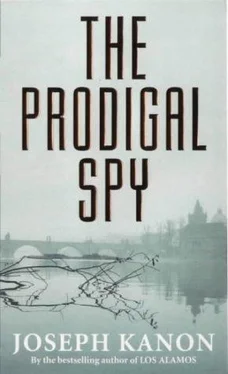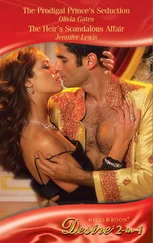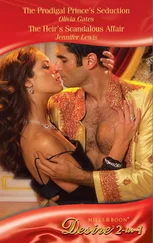He drive to Anacostia the next morning was as uneventful as before, a careful swing southeast through the back streets, toward the sun and the crisp sentries’ uniforms. When the black officer’s car slid through the gates, barely pausing for its badge check, it seemed to melt into the lot in the slow motion of a dream. Navy whites. A few official cars. What did he do here? Nick watched his dark face move toward the building, unhurried. He decided to take a chance on the guard.
“That guy who just came in? I think he put a dent on my car.”
“Lieutenant Williams?” the guard said, amazed.
“I guess. How do I get in touch with him?”
“You can’t. Not without a pass.”
“You have an extension? I just want to call, for the insurance.”
The guard checked a clipboard. “5207,” he said. “Big dent?”
“No, just a scratch. Thanks.”
Nick pulled away, the guard not even bothering to look at the car, turning his face to the sun. The whole base was dozing, far away from the war.
The Senate Office Building, on the other hand, bristled like a command post, phones ringing, secretaries’ heels clicking along the halls, busy with itself. Nick dialed the Anacostia number from a pay phone in the lobby. A girl’s voice. “Naval intelligence.” Nick put the receiver back, nodding to himself, and went to find Welles’s office.
There were two secretaries, both with beehive hairdos, both wrapped in sweaters against the air conditioning. A leather couch, piled with unopened mail, the walls filled with photographs of Welles shaking hands with everybody in the world. A portrait of Nixon. A framed campaign poster. Peace With Honor. Nick heard voices coming from the inside office, laughter.
Now that he was here, he felt a quiet panic at the ordinariness of it all, that the demon swirling through years of his imaginative life would be reduced to a man making jokes in an office, harmless, like a funhouse ride after the doors open. Welles belonged in the newsreel, gavel banging, cowing them into silence, always oversize, his malevolence so large it needed an expanse of screen or it would become invisible, too large to be seen in a small room with posters and crank mail. His father had said that when you shook hands with Stalin, the act itself was a violation of scale, allowing you to believe he was just a man.
The inner door swung open. No longer screen-size but still large, grown fat, his bulk filling the door frame. Everything the same, the straight nose and square face softened by the years of extra flesh. He was wearing a bow tie and red-white-and-blue suspenders, sweating a little in the cool room. His arms were draped around a middle-aged couple whose faces had the pleased look of pilgrims granted an audience. When he saw Nick, his smile froze for a second, then spread back across his face.
“Well, there he is. Looks like Betty’s got them back-to-back this morning. I swear, they don’t give me time to pee sometimes.” Genial, for the benefit of the couple, who smiled. “Now, bless your heart, you tell the club I wouldn’t miss it. Wouldn’t miss it. You just make sure Betty here has that date.” He turned to one of the secretaries. “Darlin‘, you circle this one now, hear?” Then, to Nick, “Well, come on in if you’re coming.” And then a flurry of goodbyes and Nick suddenly felt himself being led into the room by a hand on his shoulder, everything smaller after all.
“Well, I was surprised. Your call. But you know, your dad-Larry and I go back a ways, both sides of the aisle, so I guess I owe him a favor or two. Hell, I owe everybody favors. Now, what’s so important he couldn’t call himself? They got phones in Paris last time I heard.” Before Nick could reply, he held up his hand. “Let me tell you up front, if it’s this peace talk business he’s got himself into, I can’t do it. No help at all. The people don’t want it-they’d have themselves a lynching party with me in the rope. And I don’t blame them. Peace with honor,” he said, last year’s slogan for war. “That’s what we’re looking for here. Now, Larry knows that. Hell, that was the whole campaign. Can’t have him giving everything away over there. We’ve been there before. All our fine boys getting shot up and we’re just going to hand it to the Commies? Another Yalta? No, sir.” His cheeks puffed now, like bellows. Everything the same.
“He didn’t send me. I wanted to see you myself.”
Welles stopped, surprised. “You did,” he said, marking time, not sure what was happening. “Well, what can I do for you?”
“Larry’s my stepfather. You know my real father was Walter Kotlar.”
A tic of recognition, not alarm, a reflex to a surprise question. “That’s right. Larry married the wife. I never did understand that. There was a kid.” Just a detail, lost over the years. “That’s you?”
Nick nodded.
“Walter Kotlar,” Welles said, sitting against the edge of the desk. “A lot of water over that dam.”
“He died last week.”
“Died? Well, that’s something,” he said slowly. “Dead. I’m sorry to hear that.” He caught Nick’s expression. “Oh, he was no friend of mine. Matter of fact, he was anything but for a while there. No end of trouble. Whole thing just folded up on me. But dead-” He shook his head. “You know, it’s not just your friends. Makes you feel old when the other ones go too. Maybe more. Nobody left who knows the war stories. Kids don’t want to hear it.”
“I do.”
Welles lifted his head. “No, you don’t. There’s no percentage in that. Scratching sores, that’s all that is-you’re better off letting them alone. It don’t pay, staying mad. Your dad, he almost put me out of business. Terrible, him and that woman. But what are you going to do? You pick yourself up and roll with it. You don’t want to look back. That’s what’s great about this country-you just go on to the next thing.”
Nick looked at him, amazed. Just something that had happened to him. Was it possible it had never really mattered, the whole thing no more important than a hitch in the campaign, patched over with a booster’s platitude? Or was this just another way of telling Betty to circle the date, a hand on your shoulder on your way out the door.
“My parents never talked about it.”
“Well, that’s right. They wouldn’t.” He peered at Nick. “So you came to see me, is that it? It’s all there, you know. Matter of record.”
“Not all of it.”
Welles gave him a serious look, on guard.
“Look,” Nick said, “my father’s dead. It can’t hurt anybody anymore. It’s history. I’d just like to know, to fill in the gaps.”
Improbably, this made him smile. “History. Well, I guess it is now. We did make some history there, didn’t we? He did, anyways. What do you want to know?”
“Did Rosemary Cochrane really have new testimony, the way you announced? Did she tell you anything?”
This was clearly unexpected. “She would have,” he said, with a sly glance back.
“But she didn’t.”
Welles frowned. “Now look, I’m not raking this up again. They all said I drove her to it, but that’s b.s. I didn’t drive her to nothing. You had to know how to handle her-you needed a little pressure if you were going to get anything out of her. In the beginning, you know, when she told me about your father, I have to say I scared her into it-had to, wouldn’t have got anywhere otherwise. She knew she had to give me something. Then she just clammed up again. My opinion? Her friends got to her. God knows with what-probably scared her worse. But she still knew plenty. Thing was, how do you get her to open up? You had to turn the heat on somehow. Hell, that’s just politics. You’re from a political family, you ought to know that. You tell the papers she’s already confessed, she’s not going to have her friends to fall back on. Can’t trust her. They’re running for cover. She’s out there all alone. Maybe facing perjury, if you play it right. And she didn’t want to go to prison in the worst way.”
Читать дальше












